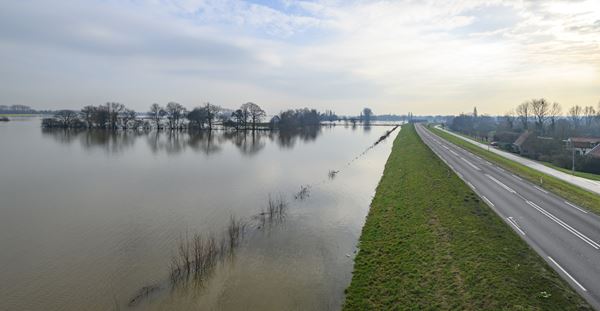Australia, celebrated for its stunning landscapes and rich ecosystems, faces a crucial juncture in its journey towards sustainable development. In a time of heightened environmental challenges, spanning climate change to biodiversity loss, integrating nature-based solutions into design and developmental strategies has never been more important.
Nature-based solutions are a paradigm shift in how we conceptualise and approach development. Defined as approaches that work with nature to address societal challenges [1], they offer a departure from viewing nature as a passive resource to be exploited or a mere backdrop to human progress. Instead, nature-based solutions recognise nature as an ally in tackling our most pressing challenges.
Today, over half of the world’s GDP is at risk due to nature loss, highlighting the urgency of integrating nature into our developmental frameworks. The World Economic Forum has recognised biodiversity loss as the third most significant global risk in the coming decade. Despite the clear urgency, only 33% of corporations have identified biodiversity as critical to business. From mitigating the impacts of natural disasters to promoting economic and social development, nature-based solutions offer tangible answers to complex problems.
Unlocking nature’s potential: The case for nature-based solutions
Nature-based solutions offer far-reaching benefits beyond addressing immediate challenges. While systematic decarbonisation remains the key to addressing climate change, nature-based solutions have an important role to play mitigating the most serious impacts of climate change. From carbon sequestration in forests to the restoration of wetlands and mangroves, they offer effective mechanisms for reducing greenhouse gas emissions and enhancing carbon storage.
Nature-based solutions also promote conservation of biodiversity and the resilience of ecosystems. By preserving, managing and restoring natural habitats, we can safeguard the countless species that call Australia home and ensure the long-term health of our ecosystems. This, in turn, has cascading benefits for human well-being, from clean air and water to supporting pollination and food security.
The importance of nature-based solutions is perhaps most evident when we consider their role in promoting social and economic development. By integrating green infrastructure and landscapes into urban planning and design, we can create healthier, more livable cities that enhance quality of life for residents. Urban forest belts, for example, not only provide recreational opportunities but mitigate the urban heat island effect, reduce air pollution, and improve mental health and well-being.
In rural areas, there are opportunities for sustainable land management practices that support agricultural productivity and enhance resilience to climate change. By implementing agroforestry systems, regenerative agriculture techniques, and sustainable land-use planning, we can promote soil health, water conservation, and biodiversity conservation while improving livelihoods for rural communities.
A call to action for Australia: Leveraging biodiversity for sustainable development
With its unique biodiversity and vast natural resources, Australia has the potential to lead the way in embracing nature-based solution s. From the bustling cities of Sydney and Melbourne to the remote outback, integrating nature into our built environment holds promise in fostering resilience and prosperity. Such an approach builds on the tradition of stewardship of the land pioneered by our Indigenous peoples, and still evident today in the use of controlled burning to support biodiversity.
Yet, as we navigate the path towards sustainability, we are confronted with the realities of short-term economic imperatives. While immediate gains are tempting, we need to recognise the long-term value and cost-effectiveness of nature-based solutions. By aligning economic objectives with ecological stewardship, we can build a future where prosperity and sustainability are two sides of the same coin.
Corporate leadership plays a pivotal role in driving this transition. Businesses have the power to influence change by integrating natural capital valuation into decision-making processes. By recognizing the value of nature, companies can unlock opportunities for sustainable growth while mitigating environmental risks.
Arcadis’ own Natural Capital Valuation (NCV) model empowers stakeholders to integrate financing and nature conservancy into decision-making. This tool identifies and values nature-related risks, aiding in prioritising nature-positive investments. The NCV provides quantitative data on nature's current state, risks, and opportunities, aligning with international standards like Science-Based Targets for Nature (SBTN).
With successful applications globally, including in Serbia, Egypt, and China, the NCV enables organisations to identify investment opportunities aligned with their sustainability goals. Recognised for innovation, it sets new standards in biodiversity incorporation, crucial for addressing global biodiversity crises. As we navigate environmental challenges, tools like the NCV are essential for reshaping risk assessment and capital allocation, driving towards a more sustainable future.
Despite the challenges we face, there is cause for optimism. The global trend towards nature-positive transition is gaining momentum, with businesses increasingly embracing nature-based solutions in their corporate strategies. Initiatives like the Task Force on Nature-related Financial Disclosures (TNFD) signal a shift towards greater corporate accountability and transparency in environmental reporting.
At the heart of the nature-based solutions movement is a shift in how we perceive and interact with the natural world. Rather than viewing nature as a commodity to be exploited, we recognise it as a source of resilience, innovation, and prosperity. By embracing nature-based solutions and integrating them into our developmental frameworks, we can chart a course towards a more sustainable future for Australia and the planet.





